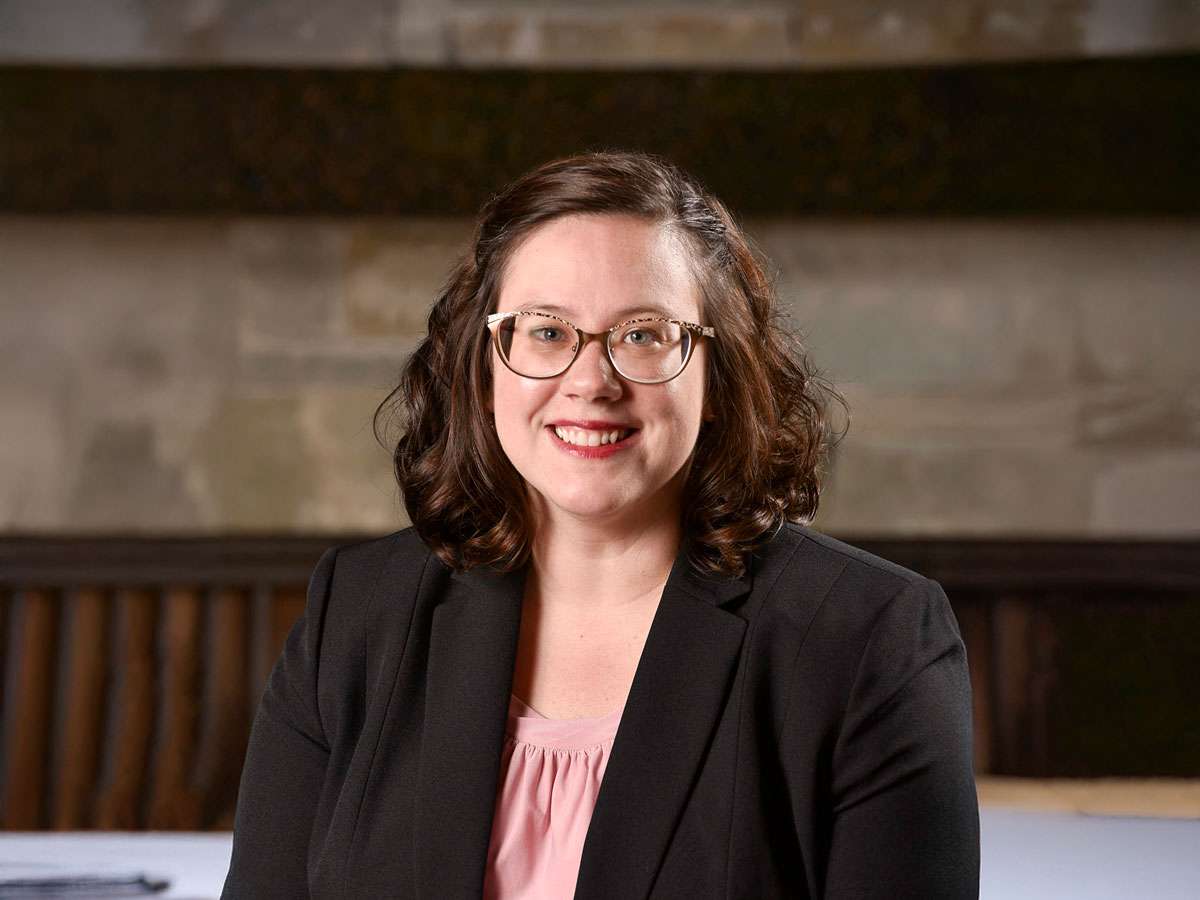
By Erica Techo
University of Alabama at Birmingham School of Nursing Postdoctoral Fellow Rachel Wells, PhD, RN, CNL, has received a five-year, $995,155 K99/R00 Pathway to Independence Award from the National Institute of Nursing Research to optimize an early palliative care intervention for persons with advanced heart failure.
The award, given by NINR under the umbrella of the National Institutes of Health, supports post-doctoral fellows in research and is designed to provide a career pathway for them to move from a mentored postdoctoral position to an independent tenure-track faculty position. Wells will receive support in two phases: a two-year K99 phase in which she will focus mostly on research training and a three-year R00 phase in which she will focus mostly on completing an optimization pilot.
Receiving the funding after the stresses and obstacles of 2020 and the COVID-19 pandemic was a powerful experience, Wells said. She started the grant application process before most of the U.S. shut down and received confirmation of her funding in April 2021.
“The grant process itself seems long—the review process is about a year and this grant is the culmination of an idea I’ve had in some form or fashion for the last five years. There was so much going on throughout the application process, and this was an emotional experience,” Wells said. “To get this funded almost a year to the date from when I started working on it was amazing.”
During the K99 phase, Wells will conduct interviews with patients, caregivers, heart failure, palliative care and primary care clinicians and lay navigators who help patients navigate the health care system to develop and tailor a telehealth behavioral intervention that will be delivered by phone. She will also complete extensive training in optimization and randomized clinical trials, health disparities research, and intervention development.
“As a cardiac critical care nurse, I often witnessed extreme distress and poor quality of life in those living with advanced heart failure,” Wells said. “From these experiences, I knew my patients would benefit from support and approach of palliative care. Thankfully, I joined Dr. Bakitas’ team and got first-hand experience with delivering and evaluating palliative care interventions for this population.
“As we move the palliative care science forward, I’ve become interested in how we unpack what is in the ‘special sauce’ of palliative care and optimization trials are one way to do that,” Wells continued. “Having those two years that are earmarked for training and learning more about this intersection of optimization and health disparities is a wonderful opportunity and a critical next step for me to build the strong foundation necessary to become successful, independent clinical trialist.”
During the three-year R00 phase, she will lead an optimization pilot involving 40 older adults with advanced heart failure over a 24-week period to assess the acceptability, feasibility and potential benefits of each component of the new intervention.
Part of achieving her goal of reducing the suffering of underserved adults with advanced heart failure includes finding ways to optimally support and engage patients in self-care, symptom management and advance care planning.
“Optimization trials are a relatively novel approach to explore how individual parts of an intervention contribute to outcome change so we can build the most efficient and effective program,” Wells said.
In relation to COVID-19, Wells said writing this grant in the backdrop of the pandemic further fueled her passion in promoting the importance of early palliative care.
“The study is focusing on palliative care in advanced heart failure, and that is a population that is at a higher risk of poor outcomes for COVID-19,” Wells said. “We knew this was a group that was more likely to have worse outcomes, and over and over again I saw the importance of early palliative care and having conversations about what is important and how do we align their values and goals with the care people receive.”
Wells’ mentorship team includes UAB School of Nursing Associate Dean for Research and Scholarship Marie Bakitas, DNSc, CRNP, NP-C, AOCN, ACHPN, FPCN, FAAN; UAB School of Nursing Assistant Professor James N. Dionne-Odom, PhD, MSN, MA, RN, ACHPN, FPCN; and UAB School of Medicine Associate Professor Raegan Durant, MD, MPH. On Wells’ extended mentoring team, UAB School of Nursing Professor Andres Azuero, PhD, MBA, provides statistical expertise, UAB School of Medicine Professor Salpy Pamboukian, MD, provides CV/Advanced heart failure expertise, and Penn State University Assistant Research Professor Kate Guastaferro provides optimization trial expertise.
“Through this whole process, I am thankful for my mentors, who were willing to agree to devote significant time as mentors if the study is funded but also willing to offer support throughout the entire grant process,” Wells said. “It is such a wonderful and unique experience I’ve had at UAB. When I joined Marie Bakitas’ team in 2013, her investment in her team and the individuals of her team was very, very clear, and I look forward to hopefully being able to reinvest in future PhD students and post-docs as well.”
Wells is a two-time graduate of the UAB School of Nursing, earning her Masters of Nursing in 2009 and her PhD in Nursing in 2019.